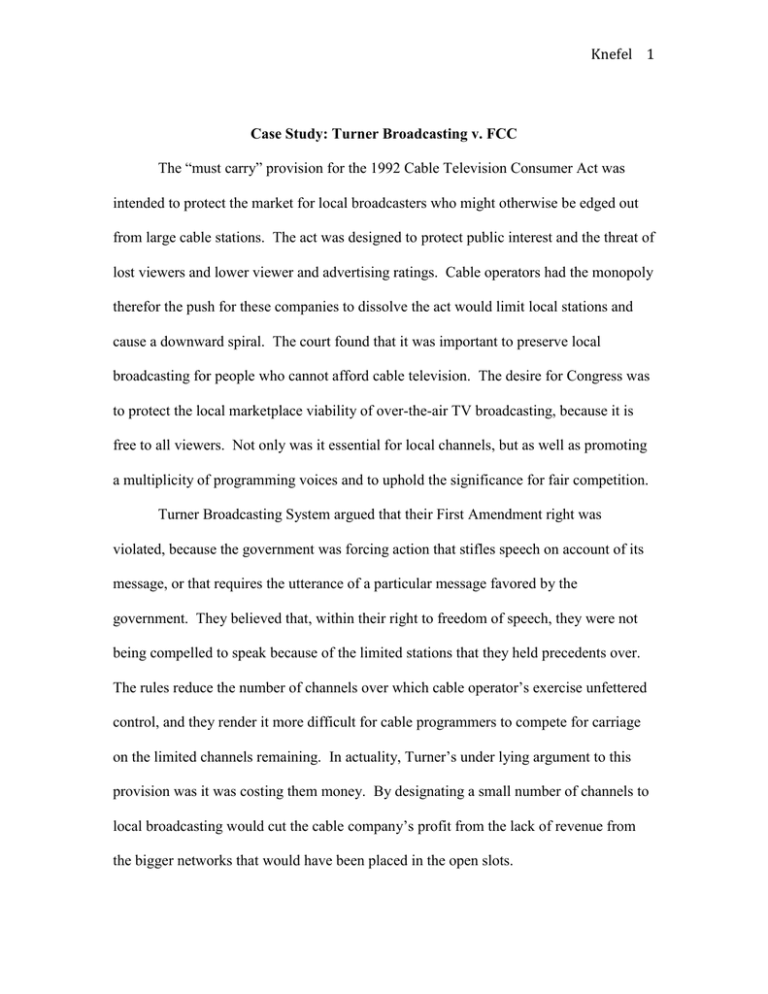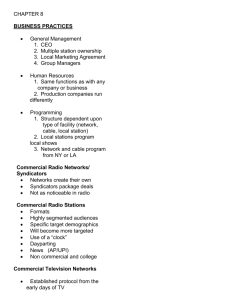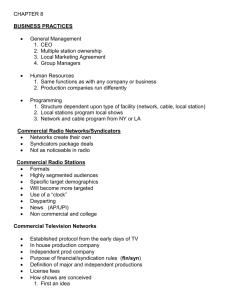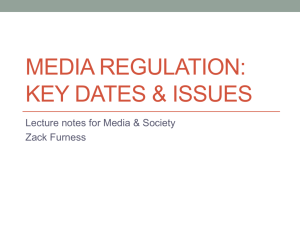Knefel Case Study: Turner Broadcasting v. FCC The “must carry
advertisement

Knefel 1 Case Study: Turner Broadcasting v. FCC The “must carry” provision for the 1992 Cable Television Consumer Act was intended to protect the market for local broadcasters who might otherwise be edged out from large cable stations. The act was designed to protect public interest and the threat of lost viewers and lower viewer and advertising ratings. Cable operators had the monopoly therefor the push for these companies to dissolve the act would limit local stations and cause a downward spiral. The court found that it was important to preserve local broadcasting for people who cannot afford cable television. The desire for Congress was to protect the local marketplace viability of over-the-air TV broadcasting, because it is free to all viewers. Not only was it essential for local channels, but as well as promoting a multiplicity of programming voices and to uphold the significance for fair competition. Turner Broadcasting System argued that their First Amendment right was violated, because the government was forcing action that stifles speech on account of its message, or that requires the utterance of a particular message favored by the government. They believed that, within their right to freedom of speech, they were not being compelled to speak because of the limited stations that they held precedents over. The rules reduce the number of channels over which cable operator’s exercise unfettered control, and they render it more difficult for cable programmers to compete for carriage on the limited channels remaining. In actuality, Turner’s under lying argument to this provision was it was costing them money. By designating a small number of channels to local broadcasting would cut the cable company’s profit from the lack of revenue from the bigger networks that would have been placed in the open slots. Knefel 2 In a 5-4 majority the court upheld the must carry requirement, because the law was not content based. The rules were not determined by the programming content, but by broadcast method. They also did not impose a burden of cable operators by reason of the views of programs carried and did not force the cable companies to alter their message. The court decided this act was at an intermediate level of the First Amendment, because it was content neutral. The law does not state which local stations must be aired rather instead specified the number that should be held for any local station to broadcast from. This was not activated by any particular message spoken, did not grant access to counterbalance the message of a cable operator, and did not force to alter their own messages in response to the broadcasting program. In order to remain fair and balanced the court sought to have the opportunity for any broadcast network, no matter their viewpoints, to have the chance to air in their local area. Congress recognized that the public television stations had an intrinsic value to the American public and were in economic peril of disappearing due to the cable television industry's monopoly. In this new age of television with digital technology, the amount of stations that are now available is astounding. In 1992 when the act was initiated, there weren’t nearly as many channels available for cable technology; when Turner Broadcasting had to set aside slots for local programming there was a significant limit imposed on the cable company. Presently, there is even less of a burden for cable networks to hold local broadcasting, because with the switch to digital has opened up hundreds of new channels. Another change since 1992 is the size of networks, cable companies have grown exponentially and the need to protect local networks have become even more imperative. If this case were presented today there would be no evidence to absolve the absolute need to protect the integrity of local broadcasting. Knefel 3 I think the largest concern in today’s market is the market dominance of media corporations. These monopolies control most of what Americans read, see, and hear; the government is now working to protect the integrity of a viable market for small and independent business. Large media corporations are far more profit-focused and riskaverse. They kill local programming because it's expensive, and they push national programming because it's cheap, even if it runs counter to local interests and community values. They often prefer to sit on the sidelines waiting to buy the businesses or imitate the models of the risk-takers who succeed. This court ruling was necessary to allow an open market for local broadcasting and it is now even more important to keep the integrity of this case at present time.





